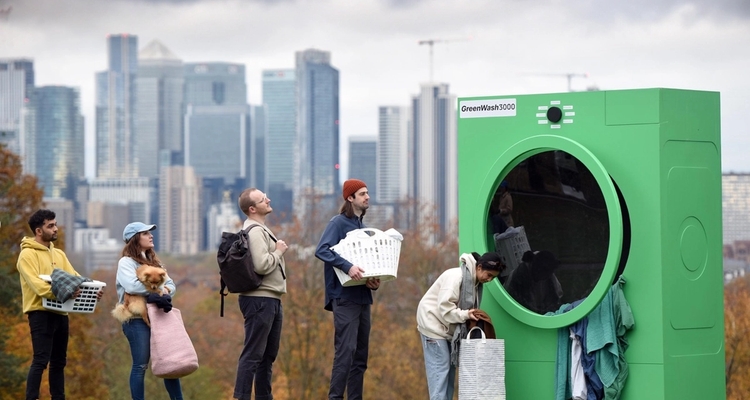
Why We Took A Giant Green Washing Machine Down Oxford Street
By Thomas Panton
Greenwashing is on the rise.
Fast fashion fraudsters and dodgy high street retailers are trying to capitalise on sustainability ethics and mislead shoppers with bogus green claims.
But UK consumers are becoming wise to it – and it’s not surprising. Concern about the environment has steadily risen over the last ten years, and it has consistently ranked within the top major issues. As more companies try to capitalise on growing awareness, UK consumers are seeing through the greenwash.
And it’s leading to a lot of pushback.
According to a new study of 2,000 people across the UK, the majority of Brits (68%) feel angry brands and retailers’ green claims could be intentionally misleading them into making a purchase.
The very people who are trying to do their bit are being tricked and sold a lie. There’s nothing worse and it only damages the sustainability movement.
So we decided to fight back. We unveiled the GreenWash3000 on a very cold and cloudy day in Greenwich Park, on Friday 24th November 2023!
It's high time we fight back and raise awareness of how fast fashion giants and reprehensible retailers are using this greenwashing machine to clean their dirty laundry and create a good 'green' appearance – even if underneath the story's very different.
Shoppers should be able to shop their values without worrying about the spin, but as it stands it's way too hard to trust these untrue claims.
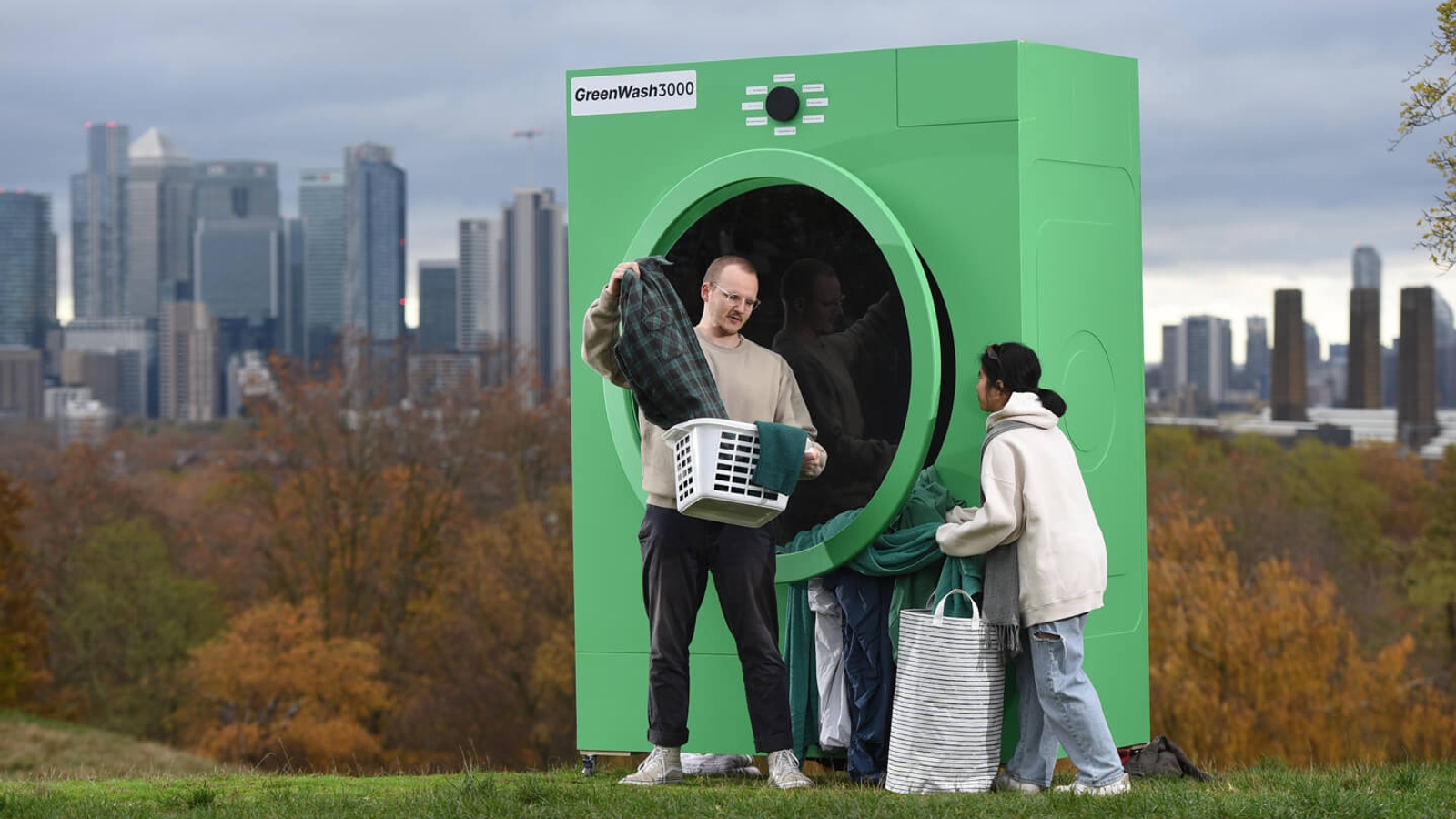
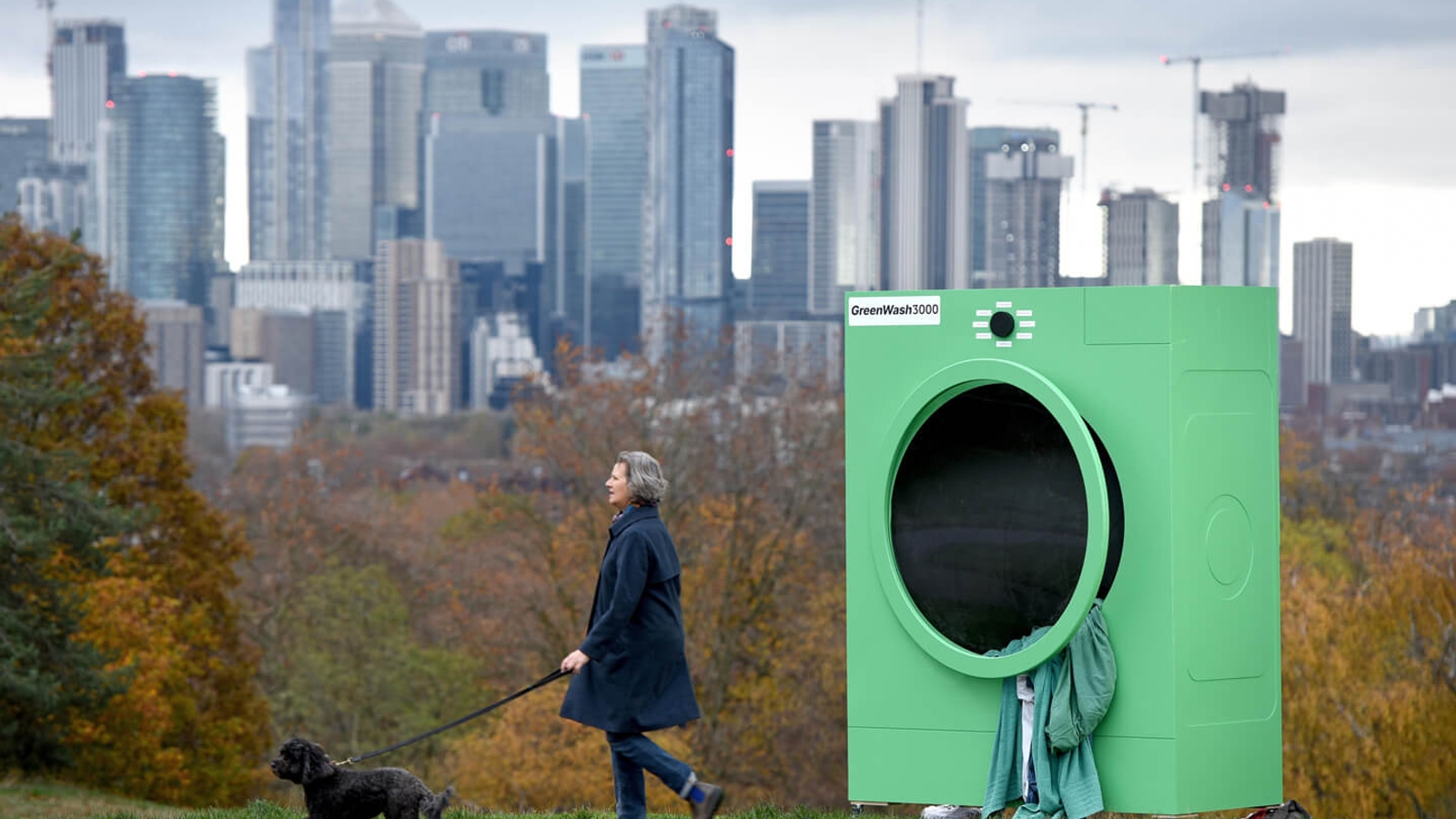
Launching the GreenWash3000 on Black Friday was intentional: this is the biggest day of the year for shopping, and a time when when greenwashing is the most rife!
So we took it on a tour around London, on some very wobbly wheels (think the cooker they find on the Moon in Wallace And Gromit) including down Oxford Street, where the biggest greenwashing culprits can be found.
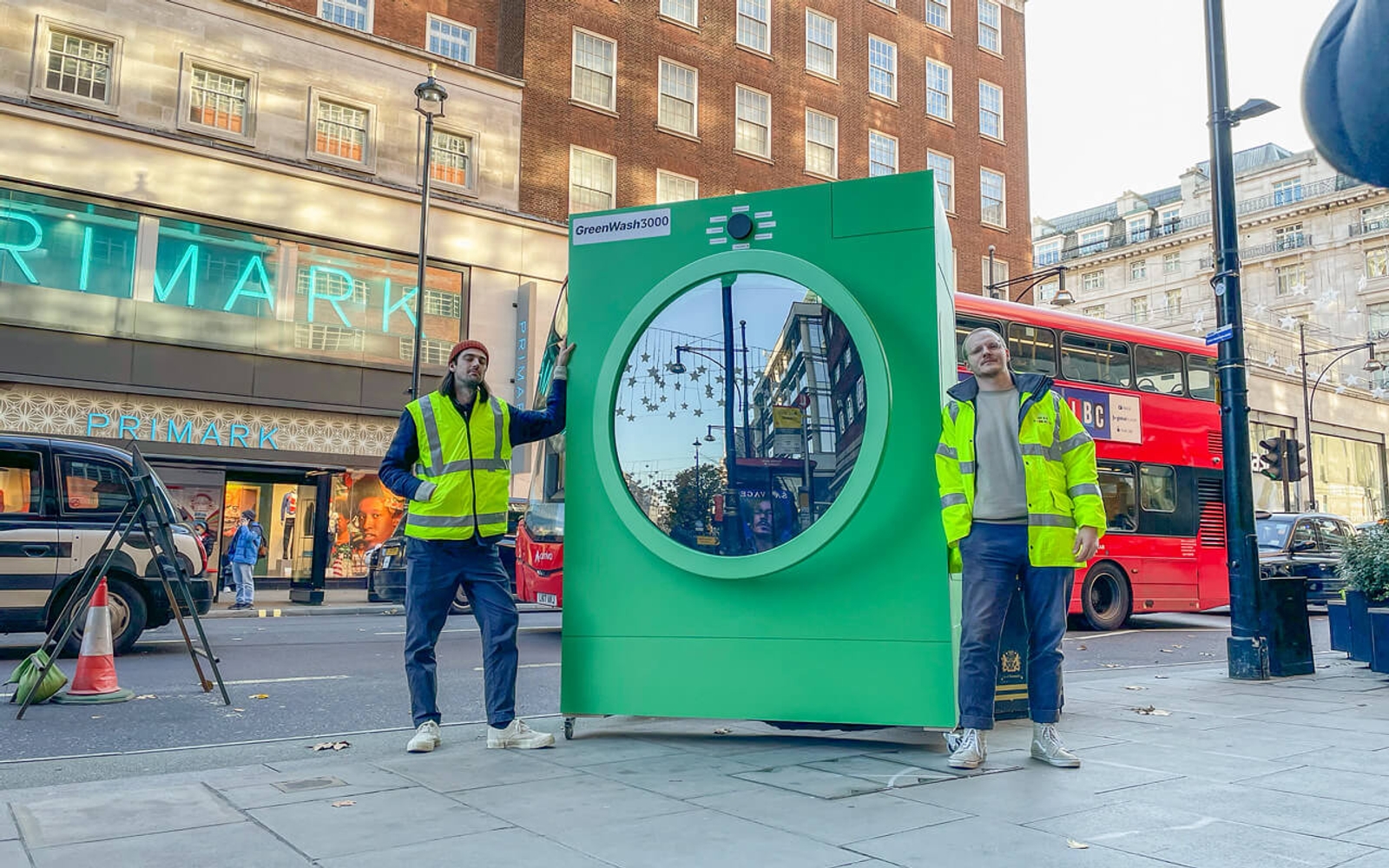
The spin needs to stop.
This is where we come in…
We started Canopey, The Home For Buying Better® to make it easier for everyone to shop sustainably help guide you through the minefield of ‘green’ and greenwashing! 🌳
We do all the research to bring verified products into one curated marketplace – and we get real evidence before adding any of our accreditations. You can also find out exactly what we need to assign them.
But more than that, we built our very own powerful Impact Calculator to help you understand the positive impact you’re making by buying better.
Greenwashing Stats in the UK
The study showed Baby Boomers (aged over 55) are the most savvy to potential greenwashing with less than half (46%) saying they trust businesses on their eco credentials.
In contrast, 71% of people aged 18 to 24 do tend to trust businesses’ green claims.
Despite being the least aware about greenwashing, the study shows people from the Gen Z age group are potentially more likely to fall victim to it.
Those aged 18 to 24 are the most likely age group to say they consider sustainability when purchasing anything with a huge 78% saying this. On the flip side, Baby Boomers are the least likely to say this with less than half (48%) considering sustainability.
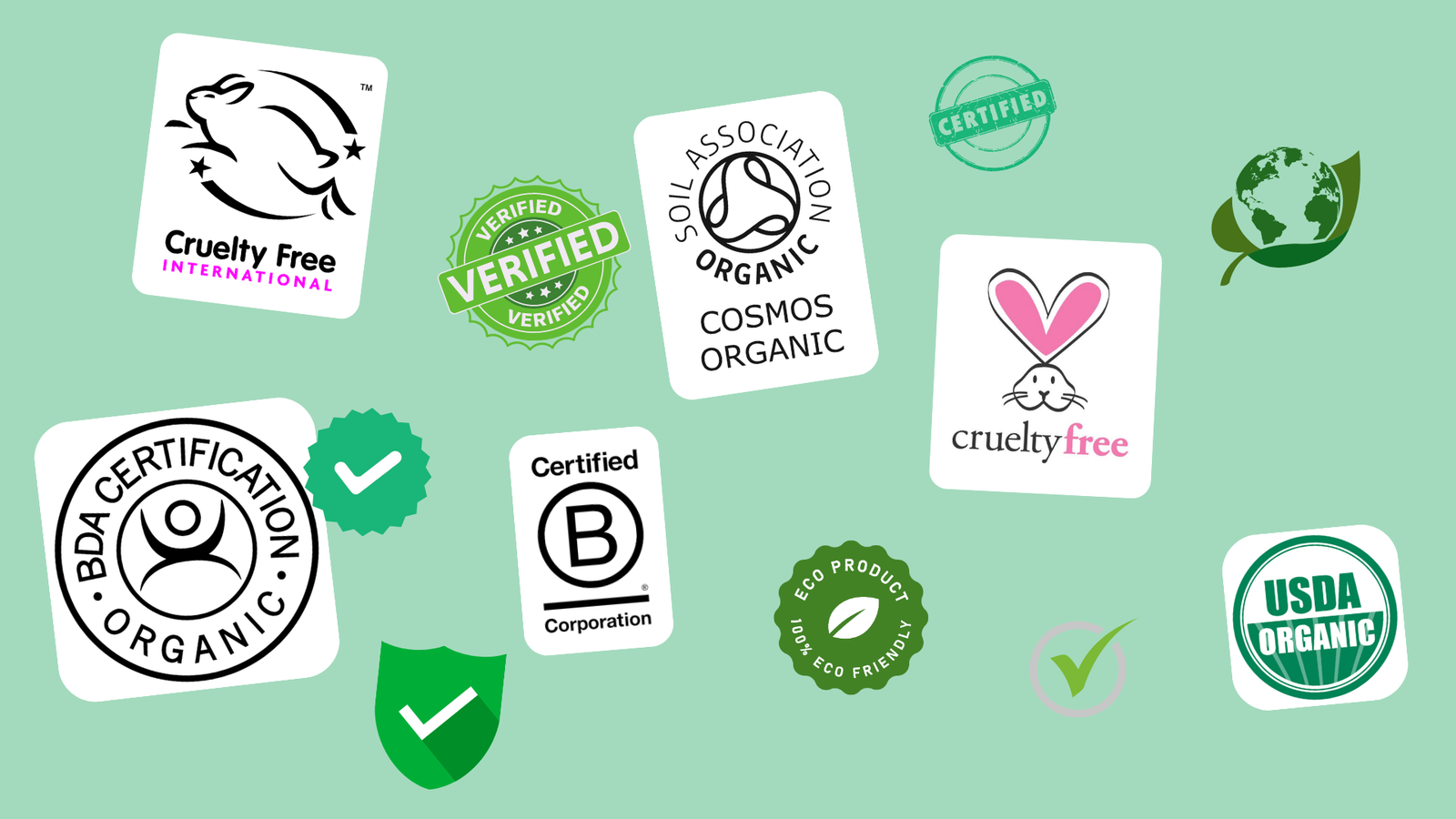
How To Combat Greenwashing
- Spot vague language – Watch out for vague language without any specifics. 'Vegan Friendly' may not actually be vegan, and ‘Good Cotton' may not mean it's organic. Check a brand's website for their Sustainability policy and look for certifications like B Corp or Cradle to Cradle.
- Choose quality, made-to-last items - Clothes and objects that are made to be treasured and last a lifetime work out much better value over time. They also tend to be made using better materials, and by workers paid a living wage (but do check these things specifically too).
- Buy to refill and reuse – Choosing reusable items like cups, water bottles and cutlery can drastically reduce the amount of single use waste we create, so consider how your shopping basket could lead to positive impacts over time, rather than just today.
By making small swaps, you can vastly reduce the impact of your lifestyle and track it by simply creating an account.
Choosing a reusable water bottle can prevent the use of 1,460 plastic bottles, amounting to savings of more than 40kg plastic. Buying more ethically sourced and manufactured clothing like a t-shirt can cut down on nearly 1,000 litres of water waste!
The Research
The research was conducted on behalf of Canopey by Censuswide, with 2,002 UK nationally representative general respondents (18)+ between 21-24 August.2023.
Censuswide abide by and employ members of the Market Research Society which is based on the ESOMAR principles and are members of The British Polling Council.



